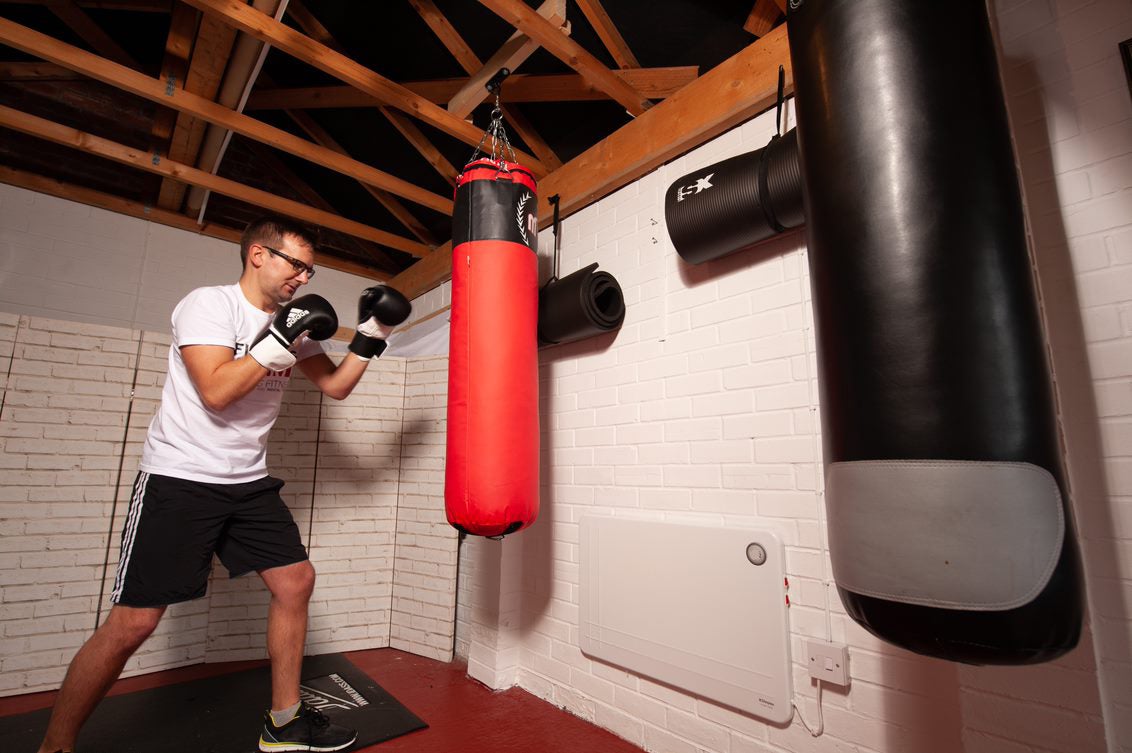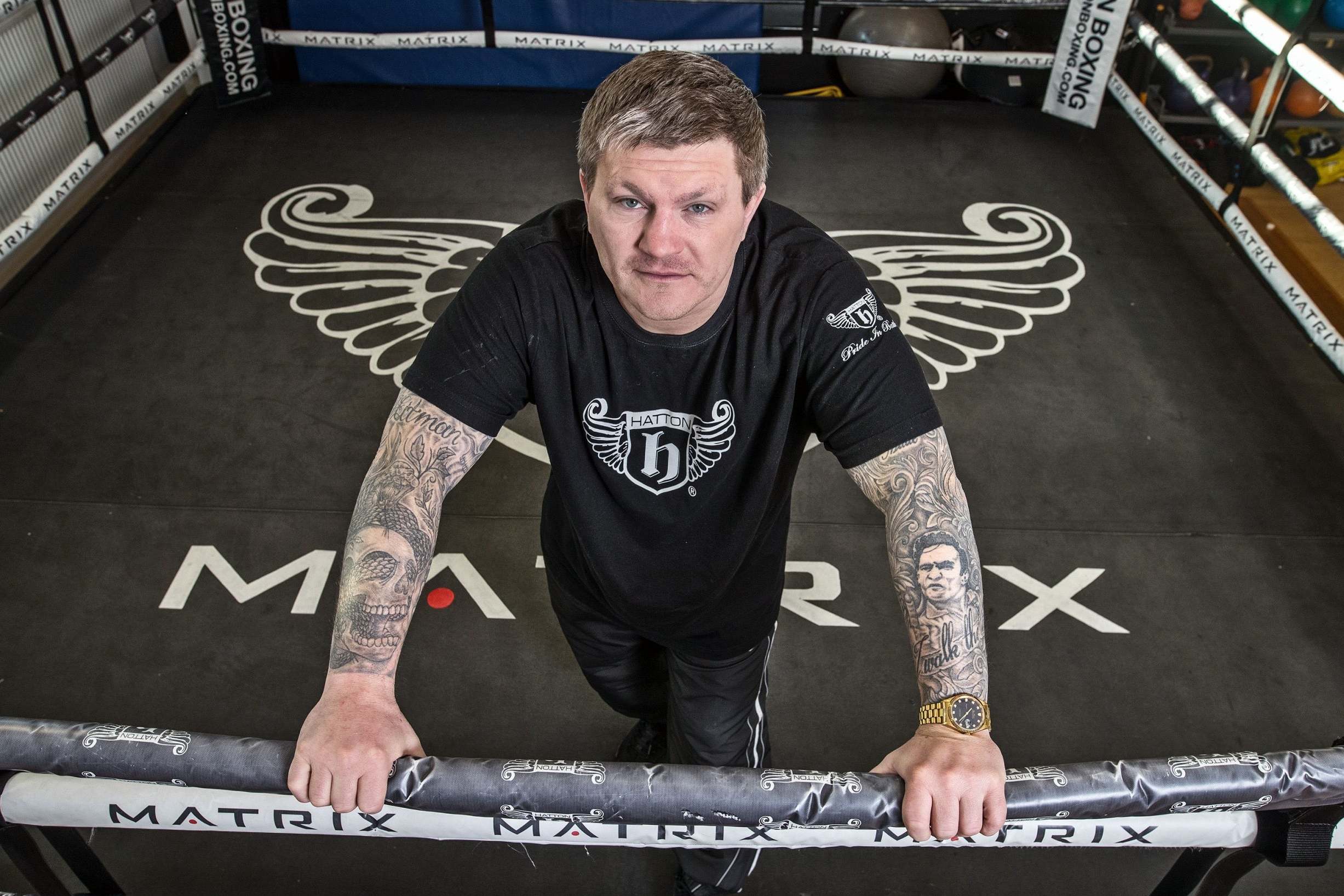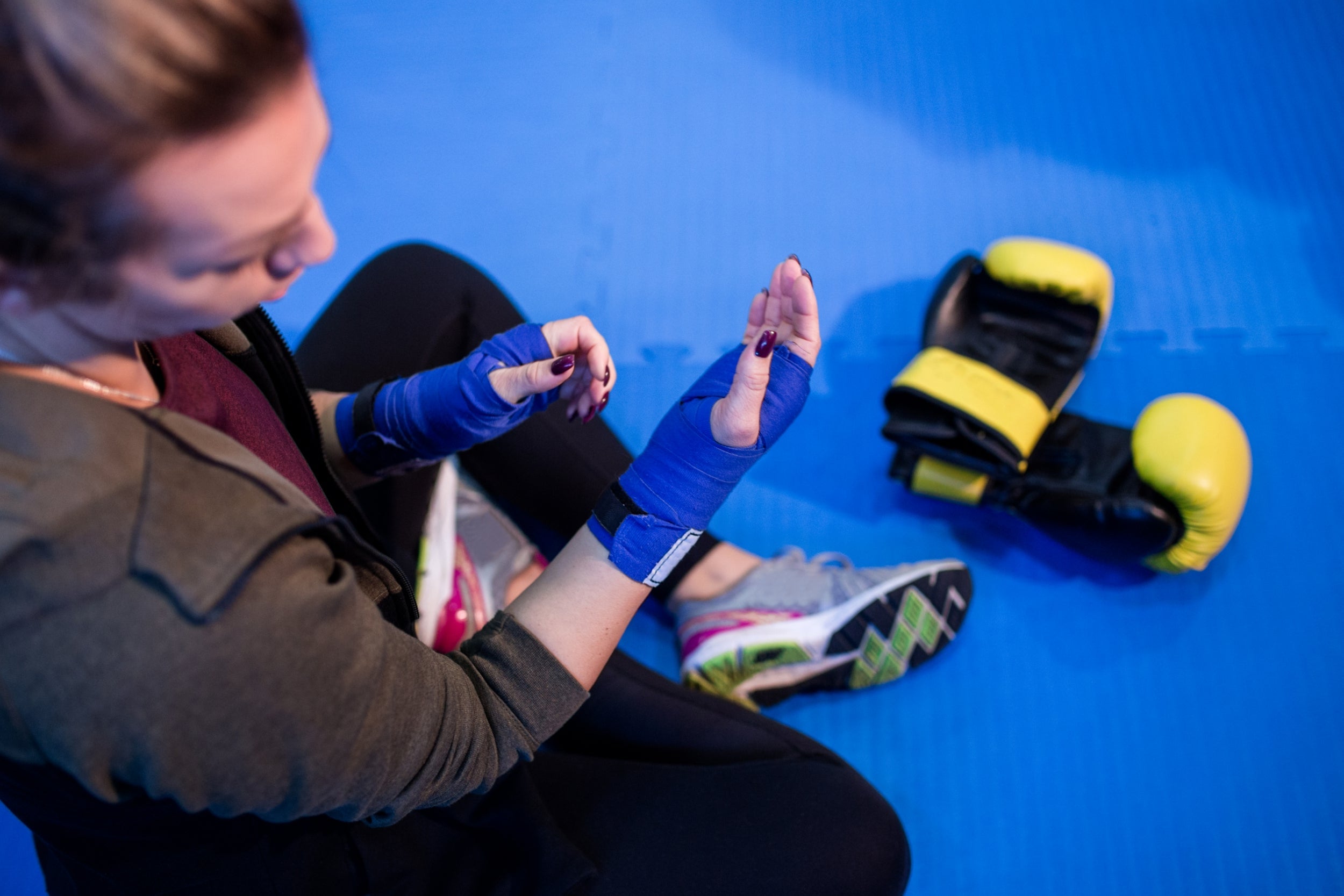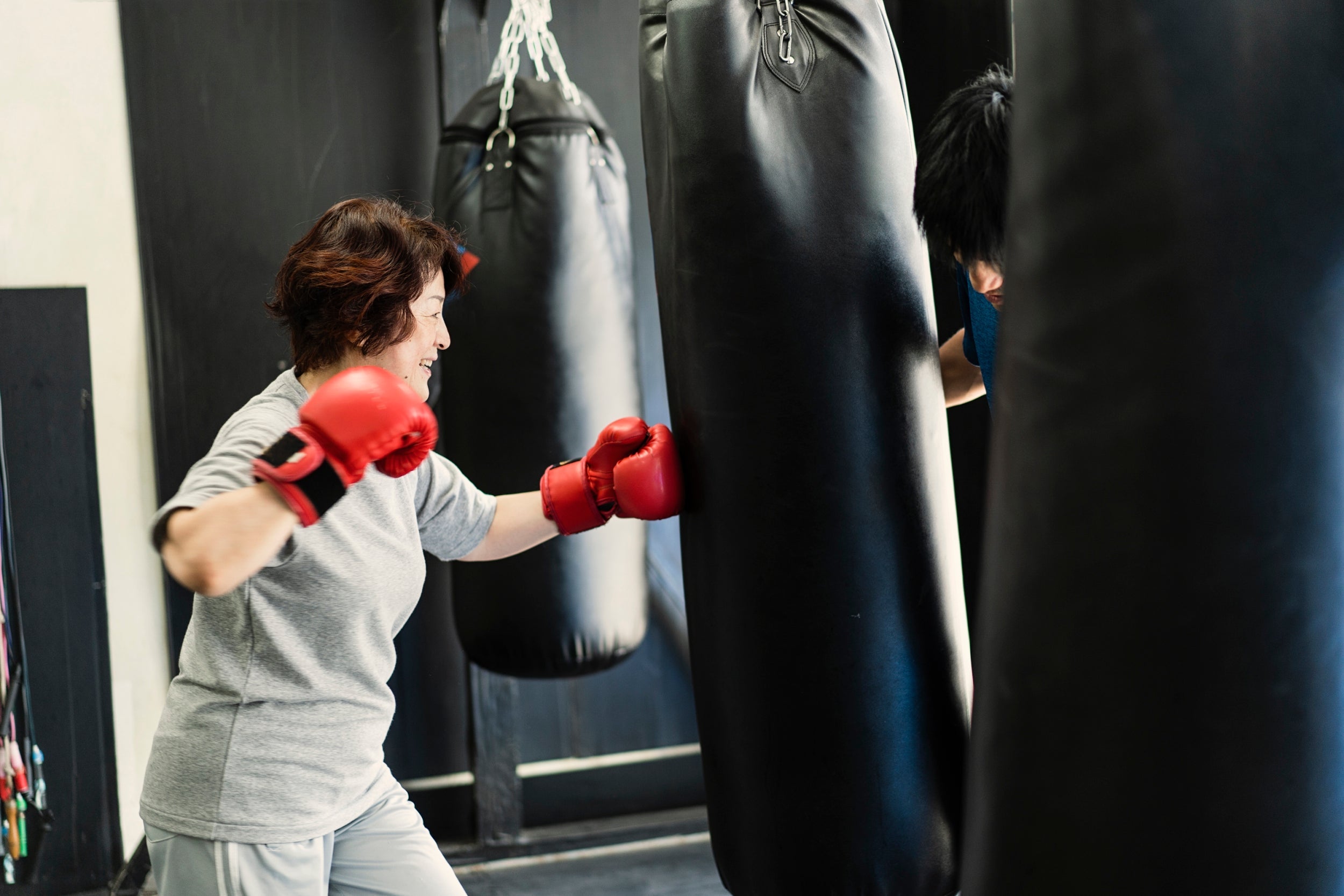Fighting Spirit: How boxing could become the ‘medicine’ GPs prescribe to mental health patients
After boxing helped her overcome depression, Gwen Richards started coaching others struggling with mental health. Now, she tells Sam Hancock, she wants the NHS to prescribe the sport instead of antidepressants


When former British heavyweight Frank Bruno said, “Boxing is the toughest and loneliest sport in the world”, he seemed to perfectly capture the very nature, and potential danger, of boxing: that it is a sport of the mind as much as it is a sport of the body.
If you think about any boxing-related film – the Rocky franchise, Million Dollar Baby, Southpaw – a huge amount of the story usually follows the boxer’s wellbeing, from how they’re coping in training and in the run up to the “big fight”, to the state of their family life at home. And it’s true, a lot rests on the mentality of a fighter – how they think and block out the noise ultimately wins them the title, not the punches they throw.
It’s no wonder, then, that a movement has slowly but surely started that is putting boxing – predominantly the non-contact kind – at the centre of new investigations in Manchester into how people can use the sport to improve their mental health.
“Your mind totally dominates you when you’re experiencing poor mental health, so it’s amazing when you can take back that control, which is something boxing totally allows,” Gwen Richards, founder of Manchester-based boxing coaching service Fighting Spirit, tells me. “For 45 minutes, you get this rare chance at mindfulness through exercise. It’s incredible.”
Richards, who has suffered with depression for over a decade, set up Fighting Spirit earlier this year to help people overcome their struggles with stress, anxiety and depression. After experiencing a particularly bad episode, which saw her temporarily move in with her mother for support, Richards was offered some advice from a “boxing friend” to get into the sport and see if it helped. “‘Don’t ask me why or how, it just works when it comes to your mind.’ That’s what he told me – and he was right,” she says.
“I can’t explain the speed at which things changed after that. I’d been trying everything to wake myself up – to help my insides stop from what felt like dying – for years; then after a couple of months of boxing, that weight just lifted,” Richards explains. “It was like this black cloud vanished and I could see clearly again. After that, I knew I had to train as an instructor and try to help as many others get into it as fast as I could.”
Fighting Spirit offers one-to-one boxing training and a safe space for Richards’ clients to talk and open up about their feelings. No contact means sessions are restricted to training only – so, unlike Bruno, there’s no actual sparring. But that’s not to say the training doesn’t challenge the fighters, both physically and mentally.
“I go about once a week and a regular session is broken up into three two to three-minute rounds – the first is a warmup followed by a bit of cardio, then the second round is normally shadow boxing (practising the moves without pads and concentrating on technique), and then the final round is a mix of that and pad work. We also do squats and lunges with some boxing moves incorporated into them,” Tom Staite, who’s been going to Fighting Spirit sessions for almost a year, tells me.
Staite, who has struggled with anxiety and depression for almost all of his life, says that after less than a year of trying non-contact boxing, the skills he has learnt mean he is now able to cope with regular anxiety attacks.

“The focus boxing gives you means you have to be present – in the moment,” he tells me. “From the classes, I’ve learnt so much more than boxing. I can now bring myself back from the attacks I’m prone to by channelling my energy more efficiently, more intelligently.”
However, empirical evidence of the impact non-contact boxing has on mental health is still very limited. When I speak to Dr Amy Blakemore, a mental health lecturer at the University of Manchester, she tells me that a huge part of her current workload as a researcher and psychologist is to build up that validation.
I can say, from experience and with my hand on my heart, that boxing is an option that should be considered. I believe it can help people who are struggling with mental illness. I really, really do
“I’m looking to develop that space, because I believe it’s one that needs to be taken seriously,” she tells me. “One of the major projects I’m working on right now called Fight Anxiety, which is funded by the charity Anxiety UK, is aimed at assessing the feasibility of non-contact boxing’s impact on people suffering with anxiety. And with the results we are expecting from the pilot, we plan to then do some larger projects across the country.”
Blakemore began her research after two coaches approached the university’s mental health research group. “It was amazing seeing the work that these guys were doing, particularly with homeless people,” she says. “Adam Taylor, one of the coaches, has experienced homelessness himself and so a lot of his work is geared towards enabling people in that community to come together, and see if boxing might be a way of helping them cope with the various issues and struggles they experience on the street.”
As well as homeless people, the project has gone on to help students and the wider community, setting up classes for those in the Salvation Army and a local hostel geared towards 16-25-year-olds. People using local drug and alcohol services are encouraged to come along too.
It’s no secret that boxing is a huge part of Manchester’s culture: Tyson Fury, Scott Quigg and Ricky Hatton are some of the biggest names in the boxing world. In fact, it was Hatton’s boxing school – the Hatton Academy – where Richards trained to be a coach and found the inspiration to set up Fighting Spirit.

“There is a lot of interest in this field right now, into just how effective boxing can be for people suffering with particularly anxiety and depression,” Blakemore says. “What I’m trying to do now, and hope I will be successful in, is getting a research bid to be able to look at these programmes, the community and non-contact boxing programmes across the board and across the country – to look at their susceptibility, as well as their potential.
“Eventually, we’ll look to create guidelines for all boxing services that are aiming to tap into mental health – and build some sort of training package, which is where Fight Anxiety really comes in: it’s a precursor for that. And, of course, the real aim is to then present that evidence to the NHS and have it begin offering boxing as a social prescription for patients using its various mental health services.”
Richards wants Fighting Spirit to become the “medicine” that GPs and other doctors “prescribe” to patients struggling with their mental health. “You read some real horror stories about antidepressants, opioids and other medications in the news [according to Public Health England, nearly 12 million people – one in four adults – are long-term users of medications like antidepressants in the UK, and find it hard to come off them] and that’s not to say that people shouldn’t use them, but it is to say that there should be options.

“And I can say, from experience and with my hand on my heart, that boxing is an option that should be considered. I believe it can help people who are struggling with mental illness. I really, really do.”
There is already interest from multiple GP practices around Manchester, Richards tells me, as well as meetings with leading NHS figures to discuss Fighting Spirit’s future as a social prescription tool.
In many people I see the inability to manage these emotions and feelings leads to problem behaviours such as self-harm, substance misuse and symptoms such as sleep disturbance and low self-esteem. Non-contact boxing on the other hand allows one to focus one’s nervous energy to satisfy aggression and to develop a sense of mindfulness
Staite says he is still on medication for his anxiety and depression, and hasn’t stopped taking it just because he’s now boxing. “But,” he tells me, “what these classes have shown me is that there are other ways to tackle mental ill health and struggles you might be having with your mind. It’s important to remember that tablets aren’t the only solution, and I think that can be forgotten sometimes.”
An obvious criticism of boxing, particularly when it’s being considered as a progressive way to channel emotions and help with mental health, is its link to violence.
Pete Davis, another of Richards’ clients, says although his life has completely changed for the better since he began boxing, he’s very aware that it gives him an immediate, and very physical, release of any pent-up emotions. “I’d been struggling for a long time and really letting pressures at work infiltrate into my personal life,” he says. “If I’m being honest, I first liked boxing because it gave me a short, sharp burn, and a way to change my mood quickly. Whereas before I used to retain all this negativity in my mind and body, I now had this instant release.”
In reality, though, says Dr Andrew Iles, a consultant psychiatrist at the Priory, a mental healthcare facility in London, there is little evidence to support concerns that promoting non-contact boxing may reinforce aggression.
“Anger management courses promote adaptive strategies such as distraction, time-out and relaxation techniques,” he says. “Exercise is another way of managing anger, but non-contact boxing (boxing which does not involve the physical hitting of an opponent), is not just about distraction, time-out and relaxation – it is about channelling negative energy into positive force; it fulfils a purpose because it is a meaningful outlet for anger and prevents frustration from building to an unmanageable level.”

Iles says the ability to channel anxiety and frustration, which non-contact boxing teaches, is an important skill. “In many people I see the inability to manage these emotions and feelings leads to problem behaviours such as self-harm, substance misuse and symptoms such as sleep disturbance and low self-esteem. Non-contact boxing on the other hand allows one to focus one’s nervous energy to satisfy aggression and to develop a sense of mindfulness.”
And what about Richards’ goal to make non-contact boxing a social prescription on the NHS? “In my opinion, that would be an innovative development and particularly helpful among patients who struggle to express their distress, frustration and anxiety in different ways,” he says.
Clearly, the potential setbacks of using non-contact boxing to combat struggles with mental illness are far outweighed by its benefits. “That’s why I believe boxing has the effect it does on people,” Richards says, “because you can’t think about anything else in that moment, and it gives you the peace of mind you sometimes so desperately need.”
When I interviewed Davis over the phone for this article, he was fresh out of a session with Richards and clearly enjoying some well-earned endorphins. In the midst of our conversation, when he touched on the “immediate release” boxing gives him and how that might be attached to anger, he made clear that this immediacy had since become a lifelong shift in the way he lives, feels and acts.
“What started as a quick fix – the rush I got from being in that moment and focusing on my hands and the punches I was throwing – actually became a very permanent sense of self-confidence,” he says. “And for me, personally, that was something I hadn’t experienced for a really long time – that feeling of self-worth. And it’s never really gone away since.”
If you suffer from anxiety or depression, Anxiety UK and Samaritans are both charities that offer support lines and services. To explore Fighting Spirit’s services, click here
Join our commenting forum
Join thought-provoking conversations, follow other Independent readers and see their replies
Comments
Bookmark popover
Removed from bookmarks